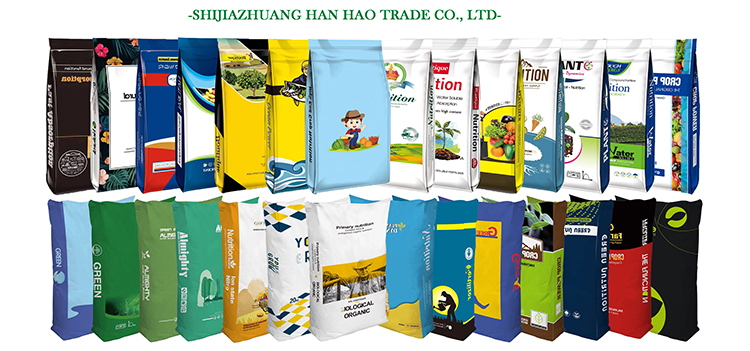
Nov . 10, 2024 10:33 Back to list
Organic NPK Fertilizer with Humic Acid Production for Enhanced Plant Growth
The Essential Role of Organic Fertilizer NPK and Humic Acid for Sustainable Agriculture
In recent years, the movement towards sustainable agriculture has gained considerable momentum, encouraging farmers and gardeners to adopt more eco-friendly practices. One of the key components of this movement is the use of organic fertilizers, particularly those enriched with NPK (Nitrogen, Phosphorus, and Potassium) and humic acid. These organic fertilizers not only enhance soil quality but also improve plant growth, making them essential for a productive and environmentally-friendly agricultural system.
Understanding NPK in Organic Fertilizers
NPK refers to the three essential nutrients that play a crucial role in plant development. Nitrogen (N) is vital for vegetative growth and is a key component of proteins and chlorophyll. It helps in promoting lush green foliage and overall plant vigor. Phosphorus (P) is crucial for energy transfer and photosynthesis, facilitating root development and flower and seed production. Lastly, Potassium (K) helps in regulating various physiological processes, including water uptake, enzyme activation, and overall plant resilience against diseases.
Organic fertilizers containing NPK are derived from natural sources such as animal manure, compost, and plant residues. Unlike synthetic fertilizers, which can lead to soil degradation and water pollution, organic NPK fertilizers improve soil health over time. They contribute to the buildup of organic matter, enhance microbial activity, and create a balanced ecosystem within the soil.
The Role of Humic Acid
Humic acid is a complex organic material formed through the decomposition of plant and animal residues. Its incorporation into organic fertilizers offers numerous benefits for soil and plant health. It enhances nutrient solubility, allowing for better availability of essential nutrients like NPK to plants. Additionally, humic acid improves soil structure and water retention, making it easier for plants to access water and nutrients, particularly in arid regions.
One of the remarkable properties of humic acid is its ability to chelate, or bind, positively charged ions, which helps in making minerals more available to plants. This chelation process reduces nutrient leaching, ensuring that essential nutrients remain in the root zone. Furthermore, humic acid stimulates microbial activity in the soil, increasing biodiversity and promoting healthy soil dynamics.
Benefits of Organic Fertilizer Mixtures
organic fertilizercompound npk and humic acid factory

Combining NPK with humic acid in organic fertilizers results in a powerful tool for sustainable agriculture. Here are some advantages of utilizing these mixtures
1. Improved Soil Fertility The balanced combination of NPK nutrients along with humic acid significantly enriches soil fertility. This leads to better crop yields and healthier plants.
2. Enhanced Nutrient Uptake Humic acid enhances the plant's ability to absorb nutrients, including those supplied by NPK. As a result, plants exhibit improved growth and productivity.
3. Environmentally Friendly By using organic fertilizers, farmers can reduce their reliance on chemical inputs, mitigating the risk of soil and water contamination. This promotes a sustainable cycle of farming that benefits the ecosystem.
4. Cost-Effective Solutions Organic fertilizers can be produced from readily available materials, allowing farmers to create their own blends. This can help reduce costs associated with purchasing commercial fertilizers.
5. Long-Term Soil Health Unlike synthetic fertilizers that can lead to soil depletion, organic fertilizers build up organic matter and improve soil structure over time, ensuring long-term agricultural sustainability.
Conclusion
In conclusion, the incorporation of NPK and humic acid in organic fertilizers plays a pivotal role in promoting sustainable agricultural practices. As the global demand for food increases, it is essential for farmers to adopt methods that not only enhance crop productivity but also safeguard the environment. By choosing organic fertilizers enriched with NPK and humic acid, farmers can significantly improve soil health, boost plant growth, and contribute towards a more sustainable future for agriculture. Embracing such methods will not only benefit current agricultural practices but will also ensure the preservation of our natural resources for generations to come.
-
High-Quality NPK Fertilizer Raw Material Manufacturer & Supplier Trusted Factory Exporter
NewsJul.08,2025
-
Organic 20-20-20 Plant Fertilizer Supplier Premium Organic Fertilizer Manufacturer
NewsJul.08,2025
-
Ammonium Sulfate Fertilizer Market - Leading Manufacturer, Supplier & Factory Solutions
NewsJul.08,2025
-
Premium Water Soluble Fertilizer 20-20-20 Reliable Manufacturer & Competitive Prices
NewsJul.07,2025
-
10-52-10 Fertilizer Supplier – Premium NPK Compound & Granular Fertilizers for Crop Growth
NewsJul.07,2025
-
Best Blueberry Organic Fertilizer - Premium Factory & Supplier Boost Your Blueberry Yield
NewsJul.07,2025
